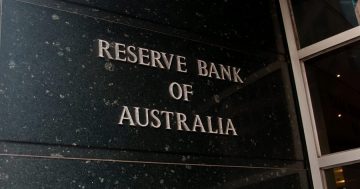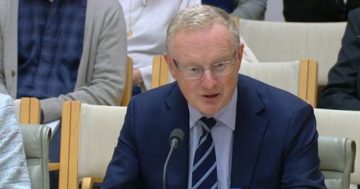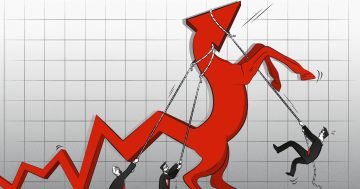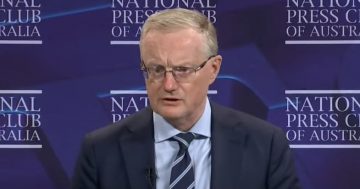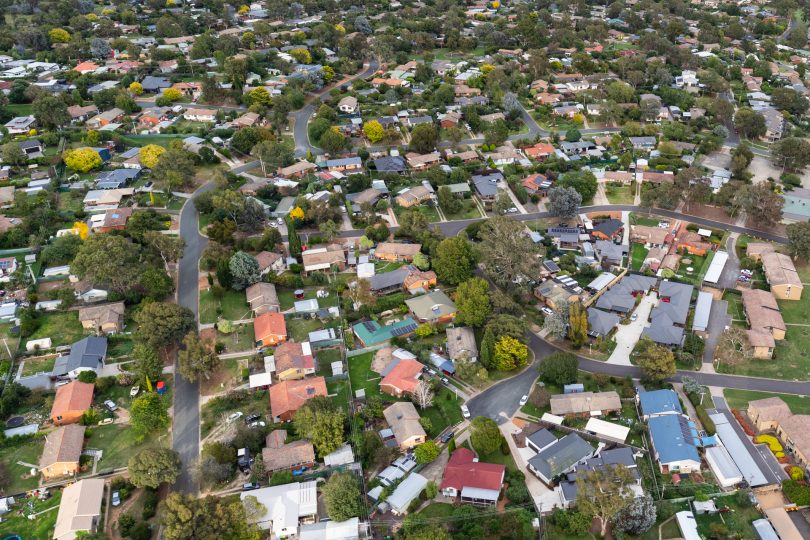
Fear in the suburbs as mortgage repayments eat up more of the household income. Photo: Michelle Kroll.
Tomorrow the Reserve Bank will attempt to slay the inflation dragon with another big interest rate rise, but it may just burn the house down in the process.
Across the western world, central banks have been increasing the price of money to take the steam out of their economies, beset by price rises fuelled by factors out of their control.
In Australia, it’s food, fuel and energy, or the weather, Ukraine, and a power system left creaking by a decade of government policy neglect.
Exacerbating the situation is the government’s pandemic stimulus funding when COVID-19 was frightening enough to keep us at home except for lightning expeditions in a mask to the supermarket for provisions.
Inflation is heading north of 7 per cent, says Treasurer Jim Chalmers, and for the Reserve Bank, its only lever is increasing interest rates to slow demand enough for prices to recede.
In the process, homeowners with a mortgage will be clobbered, and potential home-buyers will be knocked out of the running or at least may decide to sit things out until the storm is over.
That points to a slowing property market possibly crashing, rising unemployment after the elation at record low numbers, businesses going bust and already stagnant wages falling further behind.
Will it be a recession we had to have? And will it achieve the desired result given the external factors at play?
How far can Australians cut back on food and fuel before the great Australian dream becomes a nightmare of distressed sales?
What we can say for certain is that the Ukraine war and Russia’s bastardry aren’t about to end soon, meaning no amount of interest rate rises is going to bring down the price of fuel. More EVs, anyone?
Nor will they free up the trade bottlenecks caused by the war and China’s lockdown approach to the pandemic or reduce the conflict’s impact on food commodities.
The Reserve Bank’s recent performance doesn’t give confidence that it will read the economic tea leaves well enough to know when to take its foot off the brake.
But there are positives that we shouldn’t forget. Business is recovering after the pandemic restrictions, more people are in work than they have been for a long time, and the new government is, at last, providing some policy certainty on energy.
It may seem perverse, but record prices for commodities are boosting national income and will also help the government’s bottom line when the October budget is handed down.
The other thing to remember is that interest rates have been at record lows and while everything is relative, they will still be low even after tomorrow’s decision.
The government will need to tackle what is in their control, such as boosting skills and productivity, hastening the energy transition and doing something about the deplorable lack of housing.
It should also focus on those who will be hardest hit in this slowdown and possible recession and not giving those who are already doing well another bucket of cash.
Mr Chalmers has already ruled out scrapping the Morrison Government’s unwarranted stage 3 tax cuts due in 2024, but he should think again.
In their first year, these tax cuts will cost $15.7 billion and $184 billion over seven years, the great bulk of that going to people on more than $120,000 a year.
The Reserve Bank taketh away with one hand and the government giveth back, to some, with the other.
Meanwhile, average workers who haven’t had a proper pay rise in a decade will see their wages continue to go backwards in real terms, as well as paying more to keep a roof over their heads.
Mr Chalmers should also revisit the thorny subject of real tax reform so government finances can be placed on a more sustainable footing to deliver the services Australians expect.
But already conservative commentators – where else but at The Australian? – are saying the government can forget about its agenda now that the economic landscape has changed.
As usual, they are trying to corral a Labor Government into their own narrow way of thinking despite the failure of well-worn economic policies and the urgency of dealing with climate change.
What Labor needs to do is not be herded down familiar paths and go into its shell but use the crisis as an opportunity to seek solutions outside the box and be open to new ideas.
Simply doing what has been done before won’t be enough.
And we should all pray for fair weather.
















